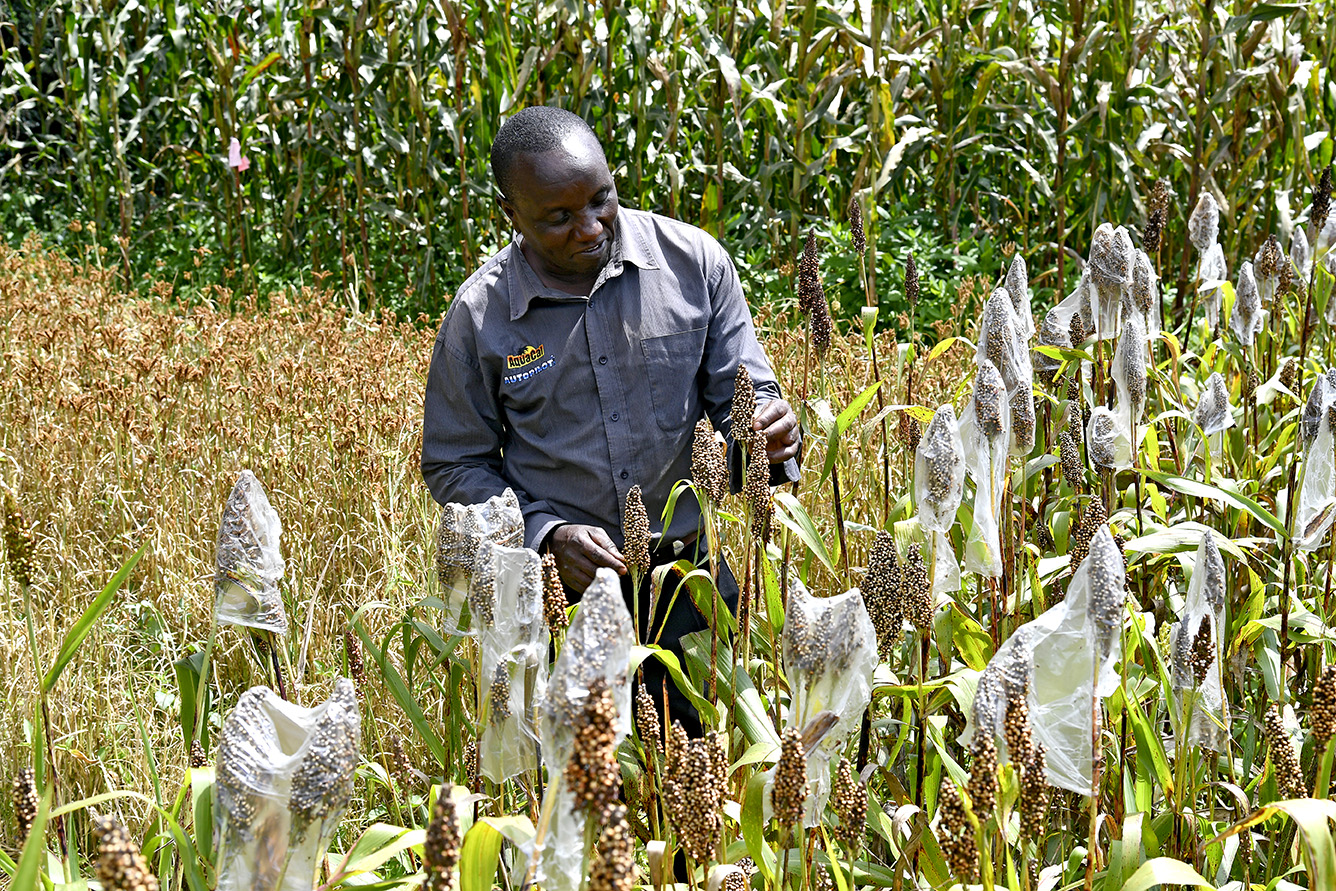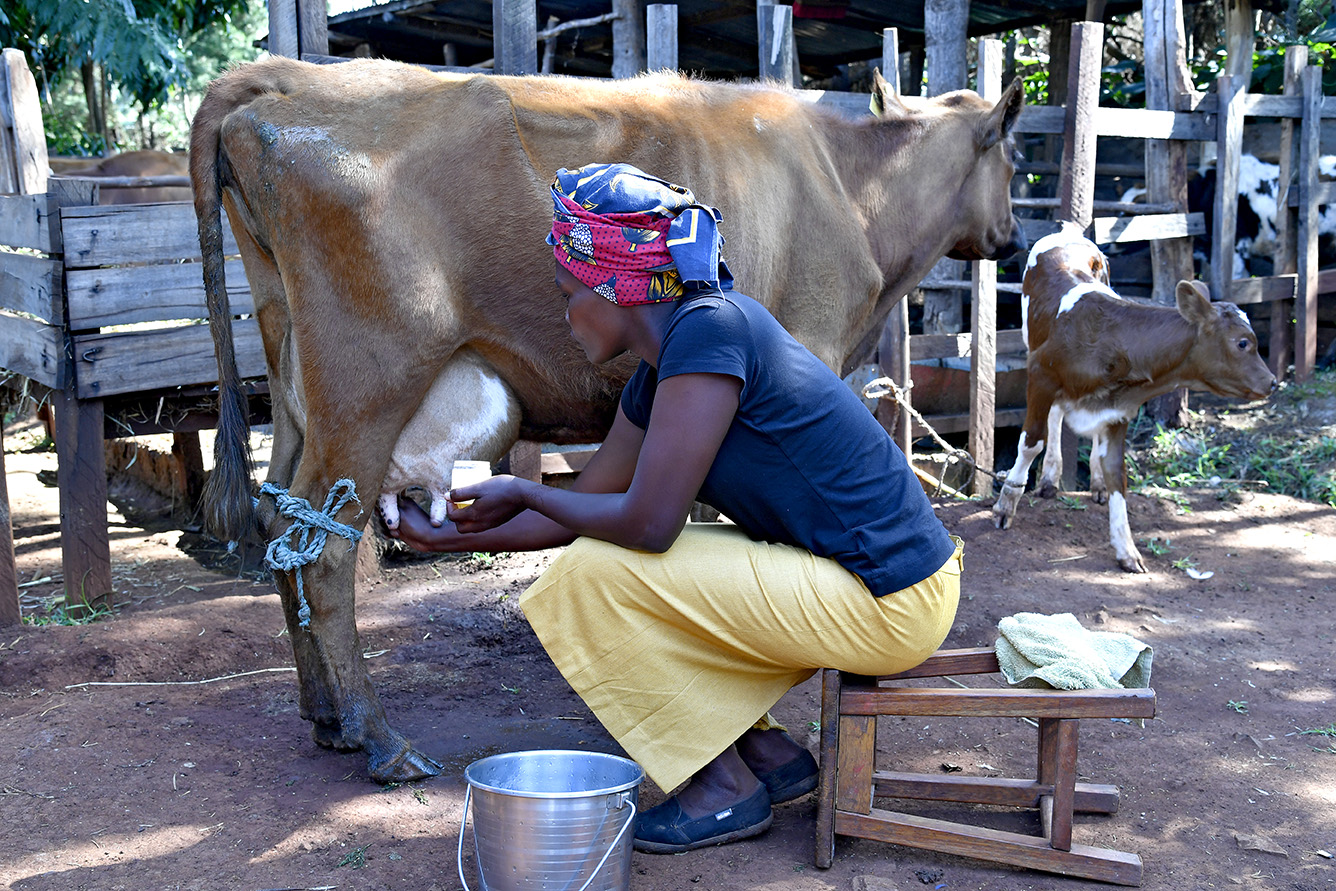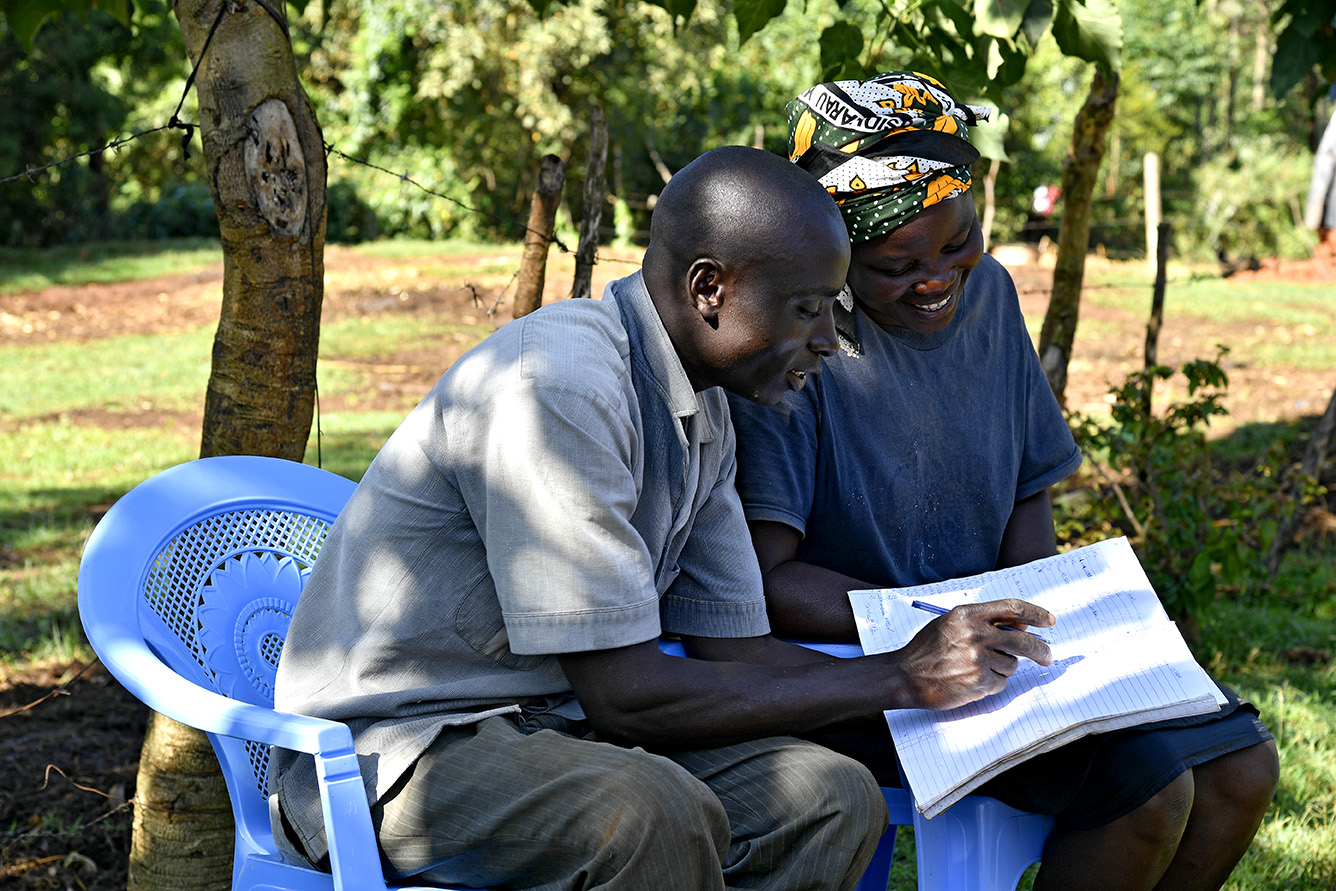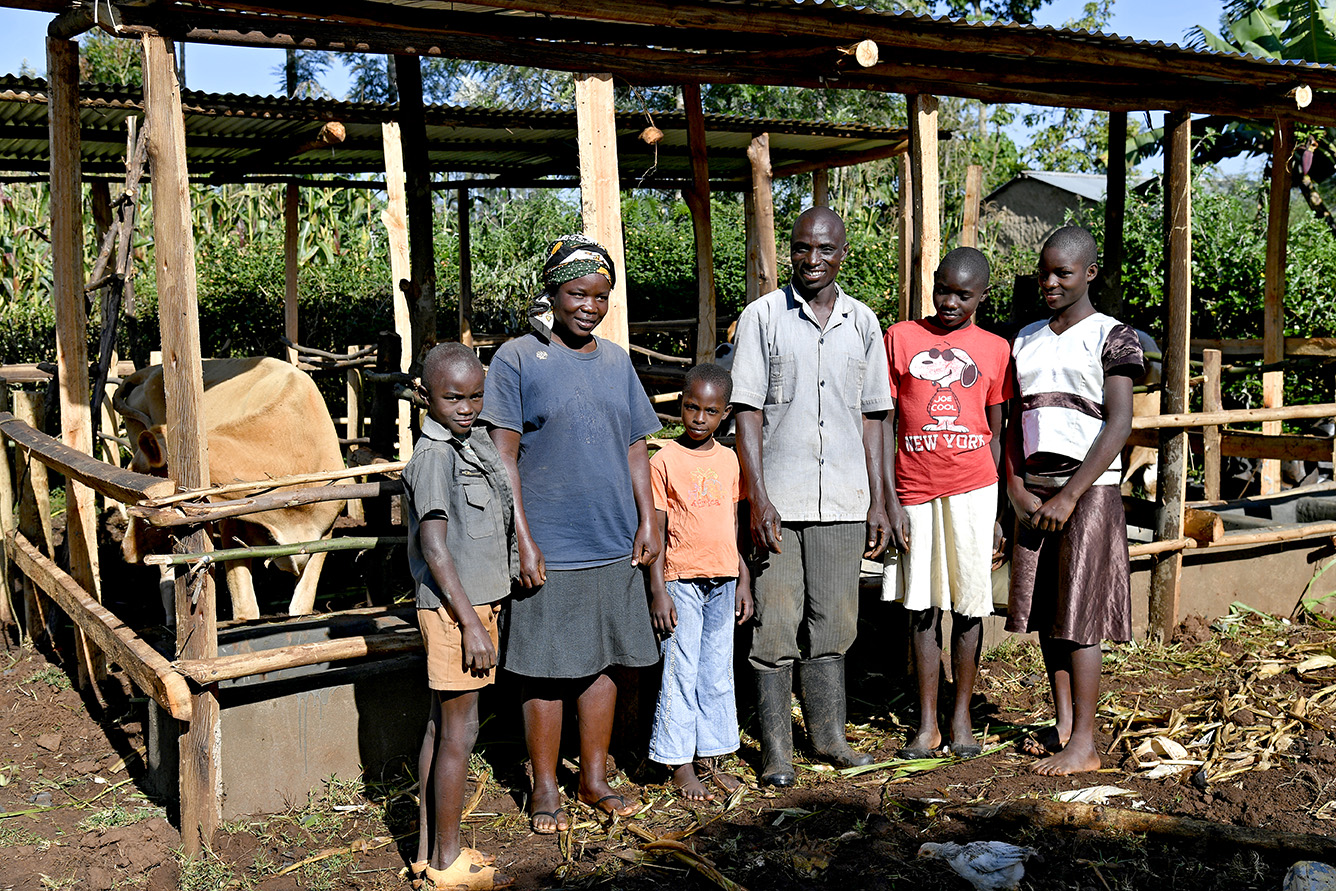The Livelihoods-Mount Elgon project is empowering 30,000 family farms with Sustainable Agricultural and Land Management (SALM) practices to preserve biodiversity and water resources and boost the local economy. Farmers’ revenues will be multiplied by 2 and the project will sequester or avoid the emission of 1 million tons of GHG. Discover how the Livelihoods-Mount Elgon project, leverages impact investing, social dynamics and market connection to improve the lives of hundreds of thousands of people.
Multidimensional challenges requiring a multi-stakeholder coalition
The slopes of Mount Elgon, in Western Kenya, are home to 2 million people. The area has high annual population growth of 2.6 %, leading to high pressure on agriculture and natural resources. What’s more, Mt Elgon is one of the main water catchments of Lake Victoria and accounts for more than 15% of its water resources.
Deforestation, inefficient agricultural practices, uncontrolled grazing and soil erosion have a direct impact on local biodiversity and soil fertility in the Mt Elgon region. This also threatens the watersheds and the ecosystem of Lake Victoria as a huge quantity of sediment are carried by rivers. Crop yields and milk production are low and smallholder farmers don’t have a guaranteed sustainable connection to markets for their produce. The dairy sector’s development is hindered by an unsecured milk supply, both in terms of quantity and quality. Milk collecting challenges prevent the sector from fully exploiting its potential.
To address these challenges at the same time, the Livelihoods Carbon Fund, an impact investment fund created by private companies, partnered with Vi Agroforestry, a Kenyan NGO part of the Swedish organization We Effect, and Brookside, East Africa’s n°1 dairy player. The Livelihoods Mount project is training farmers on sustainable practices and efficiently linking them to Brookside’s supply chain to break the vicious circle of environmental degradation, poverty and climate change.
Affordable & replicable practices for food security & biodiversity preservation
The project, launched in 2016, is reaching out to 30,000 family farms spread over 35,000 hectares. Farmers are trained in Sustainable Agricultural Land Management (SALM) practices in order to adapt to the impacts of climate change and reduce greenhouse gases, increase farm productivity and food production. The practices require limited financial investment and have proven efficient in improving agricultural productivity.
Among the methods are:
- Nutrient management such as mulching and composting
- Soil and water conservation such as retention ditches
- Agronomic practices such as crop rotation and intercropping
- Agroforestry – growing trees alongside crops and livestock
- Tillage and residue management such as zero-tillage
- Integrated Livestock Management with improved livestock feeding, breeding and waste management
- Integrated Pest Management such as biological pest control


Leveraging social dynamics & market connection to improve farmers’ livelihoods
Farmers are reached through 1,200 farmer groups and 15 existing cooperatives. Trainings are organized by field officers through demonstration farms and farmer trainers. The cooperatives are supported for milk collecting, cooling and bulking. The project strengthens the capacity of cooperatives to offer more services to their members such as veterinary services and artificial insemination. This organization has proved its efficiency as nearly 19,000 farmers have already engaged in the project only two years after its inception.
Moreover, the governance of the cooperatives and their members will be strengthened to enable women to participate more actively in the dairy value chain and decision making on a household and cooperative level. 50% of the farmers trained will be women.
Currently, most of the farmers in the project area produce an average of 3 liters of milk per day, with an even lower level during the dry period in Kenya. This low productivity is due to inadequate access to nutritious feed and water and low producing breeds. The project aims at increasing productivity to 6 – 9 liters per day per cow. This is possible as farmers will produce fodder crops on farm to feed the cows all year round while introducing improved breeds through high quality artificial insemination. Thanks to these actions, milk production in the area is expected to be multiplied by nearly 30 by 2021. Moreover, as Brookside Dairy has committed to buy all milk produced within the project over a period of 10 years, farmers have long-term visibility and can invest in their farms and improve the livelihood of their families.
A unique method to measure the project’s environmental benefits
Sustainable agricultural practices, agroforestry and the protection of river banks contribute to watershed conservation and protection of Lake Victoria. Land restoration and agroforestry trees will highly reduce soil erosion, and in the long run increase soil fertility. Free grazing, which severely damages the ecosystem, is avoided as cows have access to feed and water throughout the year. The project will also have a substantial impact on CO2 through increase in soil organic matter, tree planting and dairy cow productivity. Carbon sequestration will be tracked using increase in cow efficiency and crop productivity as a result of adoption of Sustainable Agricultural Land Management practices. This is done by the farmers themselves by filling in a simple farm activity monitoring form every season. This data is then computed by Vi Agroforestry and Unique Land Use and Forestry. The quantity of carbon sequestrated is used as an indicator of the results delivered by the project. This first of its kind carbon measurement, approved by the Gold Standard, has been specially designed for the Livelihoods Mount Elgon project.
Learn more about the soil-water-carbon nexus and this monitoring method.
A result-based investment model to create a virtuous circle
The Livelihoods Mount Elgon project is built on an innovative model. It is financed by the Livelihoods Fund, an impact investment fund created by private companies, that bears the investment risk. Brookside Dairy co-invests in the project and pays according to milk production. Vi Agroforestry, an NGO, implements the project and will monitor it over a 10-year span. The project will improve the livelihood of 30,000 smallholder farmers and their families by creating USD 200 million in the dairy sector over a period of 10 years. It will also sequester more than the equivalent of 1 million tons of CO2 and create tangible environmental benefits (water and biodiversity).
Discussions are currently underway to replicate the Livelihoods-Mount Elgon project in other African countries.
The household roadmap:
An innovative tool to empower women
Women in the project expressed a strong will to have equal share of responsibilities and benefits for men and women. A “Household Roadmap”, an innovative tool, has therefore been designed to support them in reaching this goal. It namely identifies areas of improvement in the workload, roles and responsibilities between husband and wife. With this tool, women get a better recognition of their contributions to the household and they can build a shared vision for its development. For example, with a “Household Roadmap”, husband and wife identify different options to relieve the woman’s workload: investment in on-farm feed production, a borehole… After one year, nearly 6,000 families have already volunteered to elaborate their “Household Roadmap”, showing that women’s struggle for more equity is slowly but surely finding its way.


Photos: Gérard Tordjman/ Livelihoods Funds.


